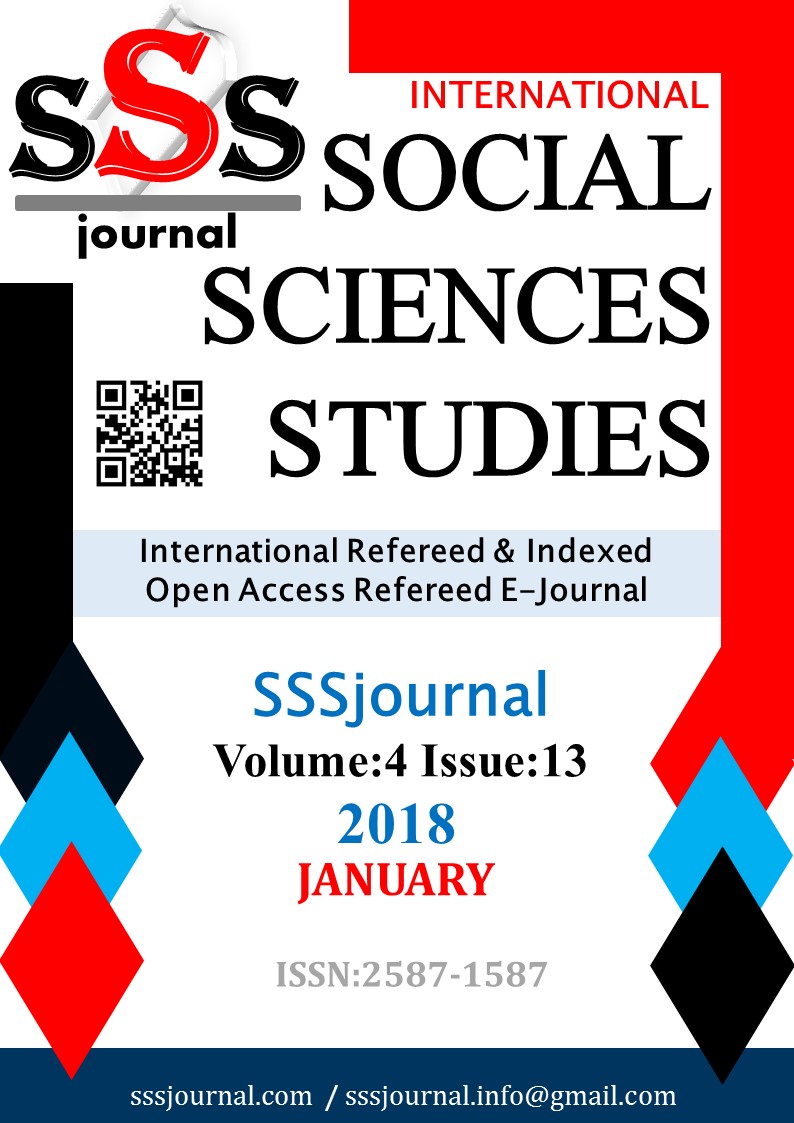PRESCHOOL TEACHERS’ SELF-EFFICACY BELIEFS EVALUATION OF SCIENCE TEACHING IN EARLY CHILDHOOD EDUCATION
Author :
Abstract
Fen ve bilim bir keşfetme ve aynı zamanda bilimsel bir sorgulama sürecidir. Matematik ve fen çocukların doğal öğrenme arzularına uygun temel alanlardır. Okul öncesi eğitim öğretmenleri çocuklara kaliteli deneyimler kazandırma fırsatına sahiptir. Öğretmenlerin sahip olduğu yüksek öz yeterlik seviyesi, onların daha zor kazanımlara ulaşmalarını sağlar. Bu çalışmanın amacı anaokulu öğretmenlerinin öz yeterliklerine yönelik görüşlerini analiz etmektir. Bu amaçla Kahramanmaraş ilinde görev yapan ve beş yaş grubu çocuklarla çalışan elli öğretmene ulaşılmıştır. Veriler anaokulu fen ve bilim öğretimi öz yeterlik anketi ile elde edilmiştir. Sonuçlar anaokulu öğretmenlerinin farklı seviyelerde olumlu öz yeterliğe sahip olduklarını göstermiştir. Anket maddeleri içerisinde öğretmenlerin olumlu olmak ile birlikte, fen eğitimi sürecinin teorik altyapısına yönelik maddelerde daha az puan aldıkları görülmüştür. Bu durum anaokulu öğretmenlerinin olumlu öz yeterliğe sahip ve aynı zamanda farklı etkinlik ve bireysel gelişime açık olduklarını göstermiştir.
Keywords
Abstract
Science is a process of studying and finding out which is also called scientific inquiry. Mathematics and science skills are privileged domains that children have a natural tendency to learn, experiment, and explore. Early childhood educators have the opportunity to create quality experiences that will have a lasting impact on preschool children. High level of self-efficacy belief leads teachers to higher objectives and consistency in decisions of the individual; provides high levels of cognitive process and motivation. The purpose of this study was to evaluate preschool teachers’ self-efficacy beliefs of science teaching. Sampling was fifty preschool teachers with five years old group. Data was collected using Preschool Science Teaching Survey. Results showed that preschool teachers positive self-efficacy at different levels towards science teaching. Among survey items, teachers’ agreement level was low when it comes to technical background of the science teaching process. This result indicated that preschool teachers had self-efficacy and also open to use different science teaching activities and individual progress for scientific concepts.
Keywords
- Azar, A. (2010). In-service and pre-service secondary science teachers’ self-efficacy beliefs about science
- Azar, A. (2010). In-service and pre-service secondary science teachers’ self-efficacy beliefs about science teaching. Educational Research and Reviews, v.5(4), p.175-188.
- Bowman, B.T., Donovan, M.S., & Burns, M.S. (2001). Eager to learn: Educating our preschoolers. Washington, DC: National Academy Press.
- Bandura, A. (1997). Self- efficacy: The exercise of control. New York: Freeman.
- Dere, Z. (2017). Yaratıcılık ve geliştirilmesi dersinin öğretmen adaylarının yaratıcılıklarına etkisinin incelenmesi. Social Sciences Studies Journal, v10(1), p.1192-1199.
- Duman, G. (2013). Okul öncesi öğretmenliği lisans programı öğretmenlik uygulaması derslerinin öğrenci boyutunda değerlendirilmesi. Kastamonu Eğitim Dergisi, v21(4), p.1661-1674.
- Eggen, P. & Kauchak, D. (1999). Educational psychology (4th Ed.). New Jersey: Printice-Hall. p.197-210.
- Karasar, N. (2005). Bilimsel araştırma yöntemi: Kavramlar ilkeler teknikler, (15.Baskı). Ankara: Nobel Yayınları.
- Küçükyılmaz, A. & Duban, N. (2006). Sınıf öretmeni adaylarının fen öğretimi öz-yeterlik inançlarınınartırılabilmesi için alınacak önlemlere ilişkin görüşleri. Yüzüncü Yıl Eğitim Fakültesi Dergisi, 3(2), p.1-23.
- National Research Council, NRC. (1996). National science education standards. Washington, DC: National Academy Press.
- Pajares, F. (1996). Self-Efficacy beliefs in achievement settings. Review of Educational Research, v.66(4), p.543-578.
- Tschannen-Moran, M. & Hoy, A.W. (2001). Teacher efficacy: capturing an elusive construct. Teaching and Teacher Education. 17(7), p.783-805.
- Tuğluk, M.N. & Öcal S. (2017). Examination of stem education and its effect on economy: Importance ofearly childhood education. Educational Research and Practice (Eds:Koleva, I. and Duman, G.), p.362-370. St. Kliment Ohridski University Press.
- Yılmaztekin, E.Ö. & Erden, F.T. (2016). Investigating early childhood teachers’ views on science teachingpractices: The integration of science with visual art in early childhood settings. Early Child Development and Care, v.187(7), p.1194-1207.
